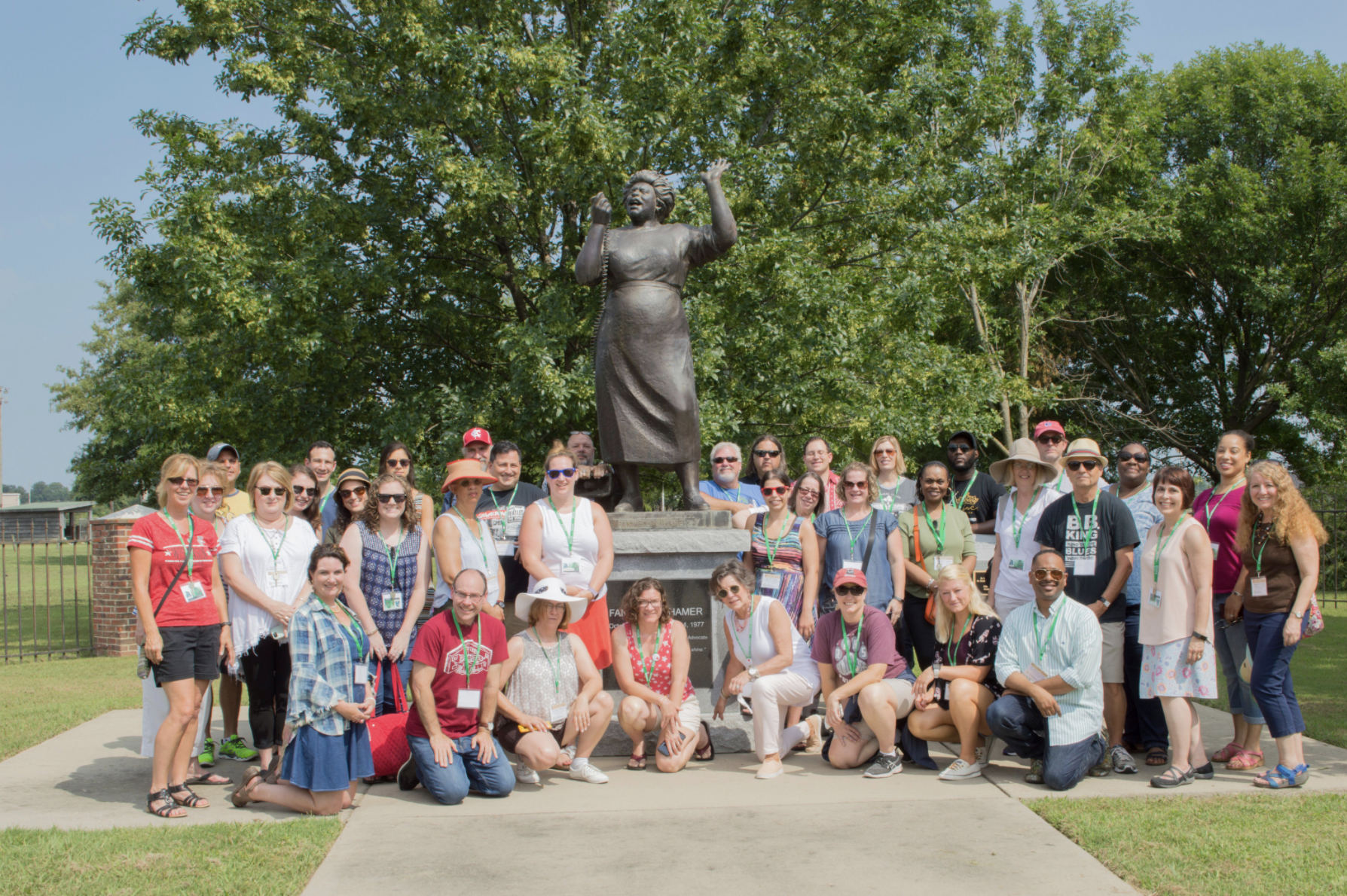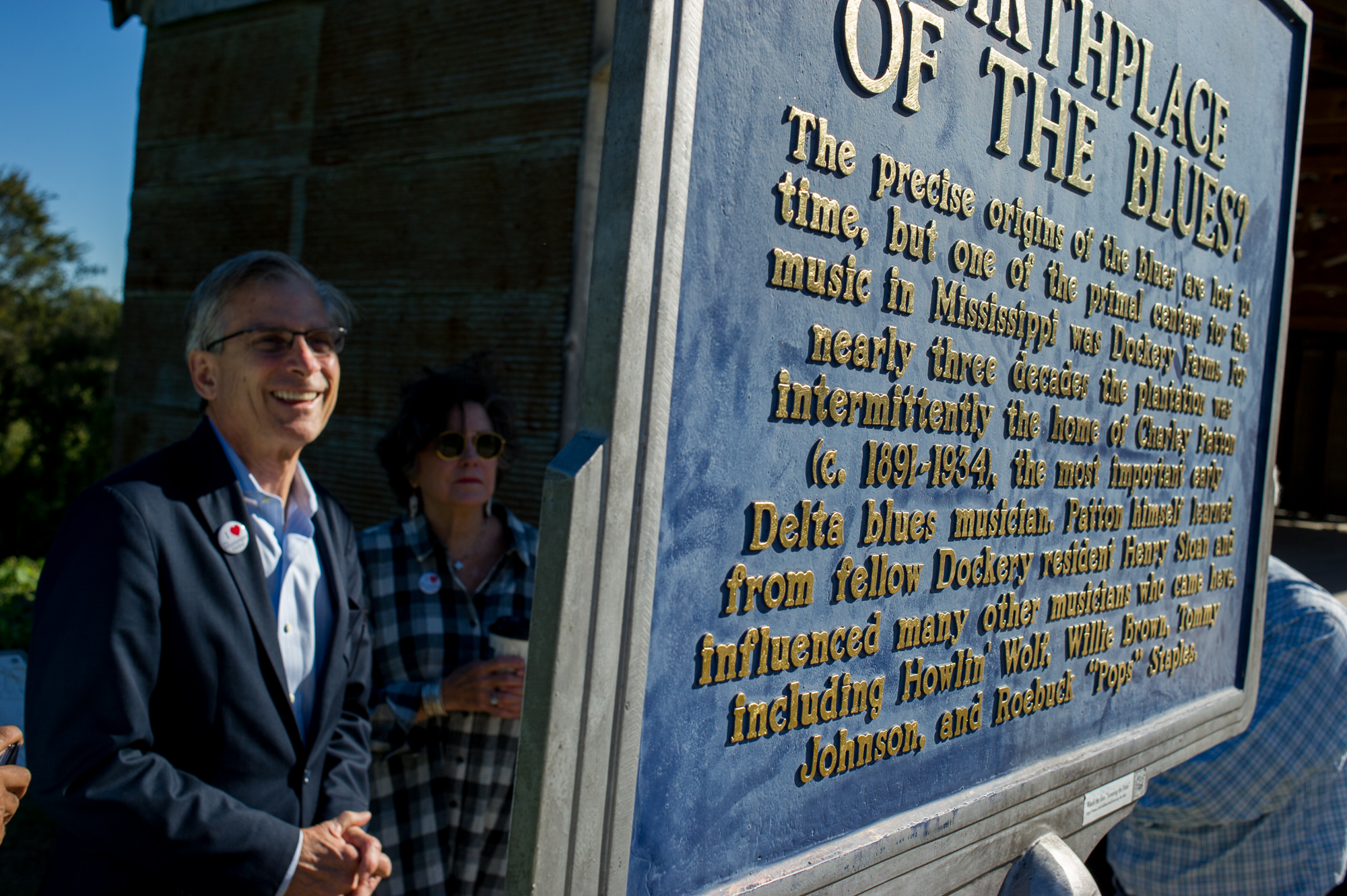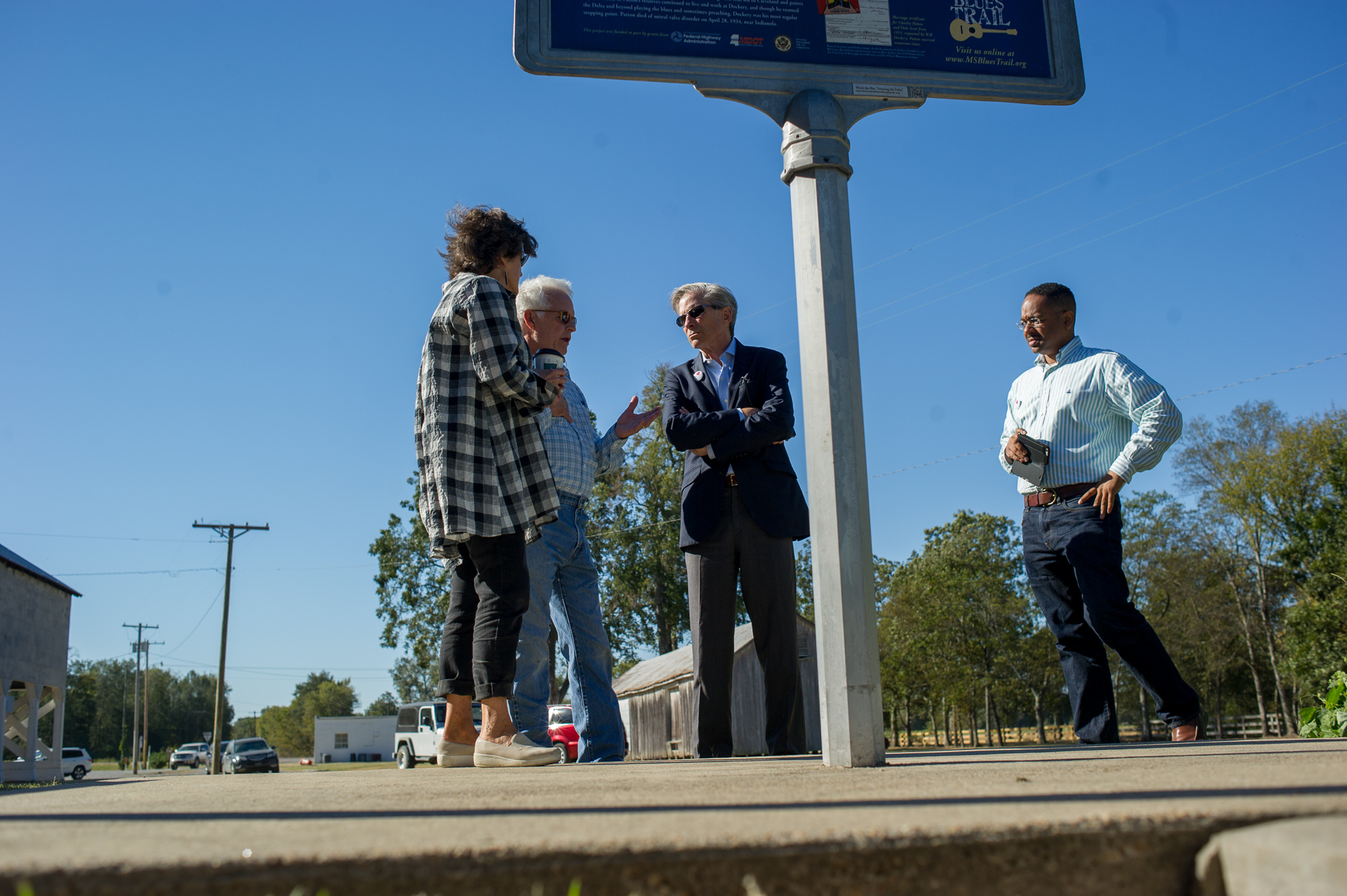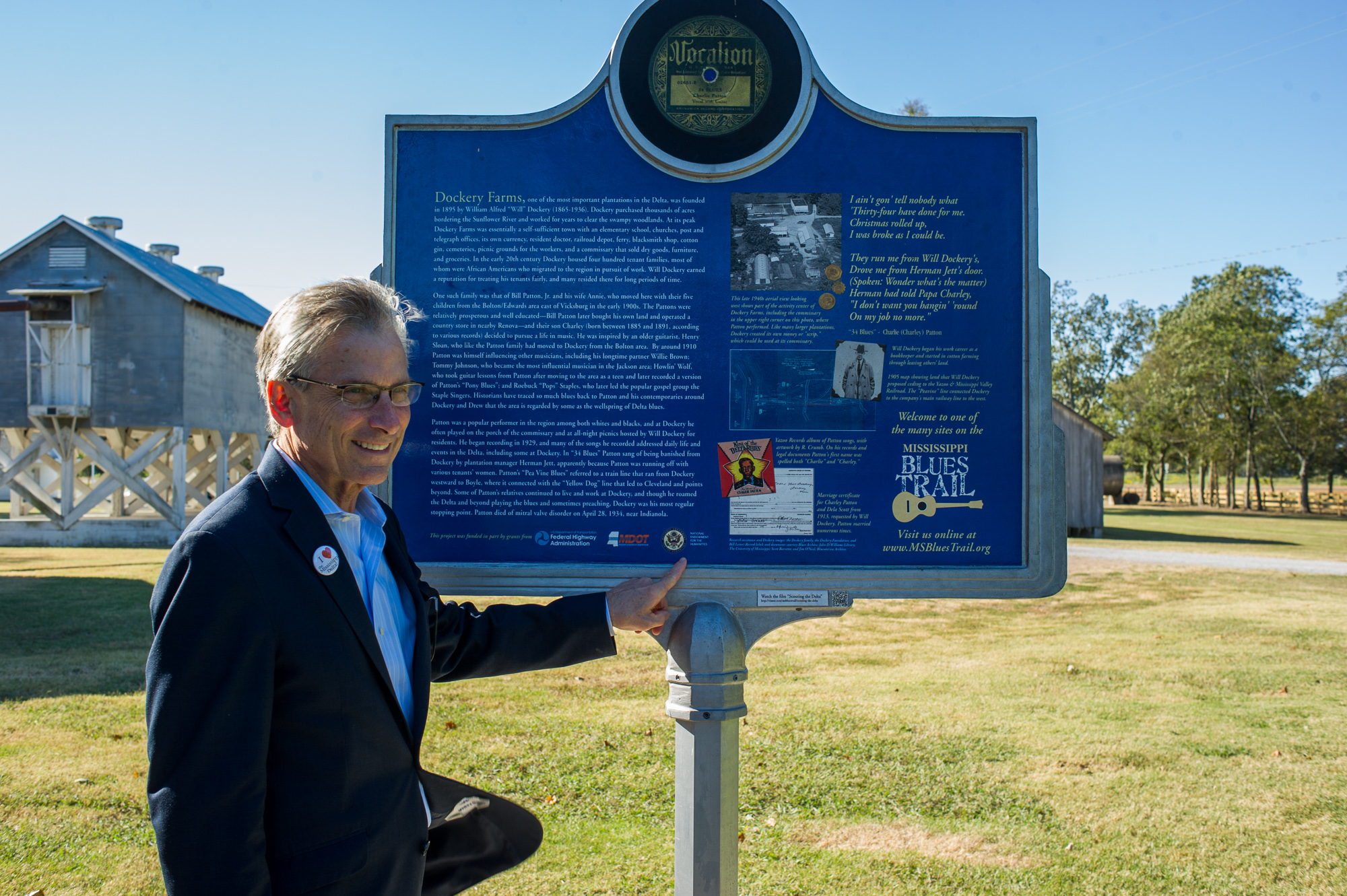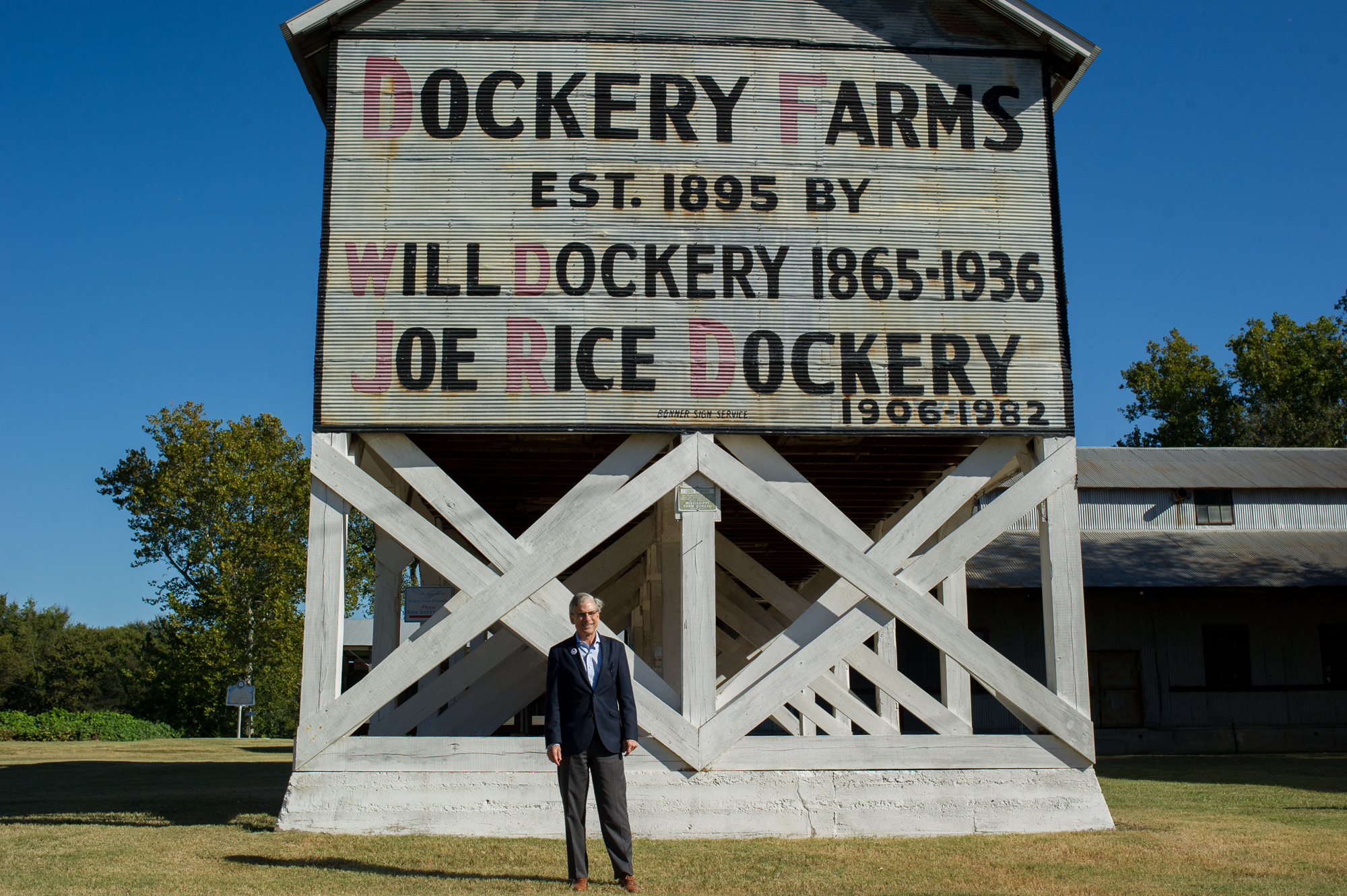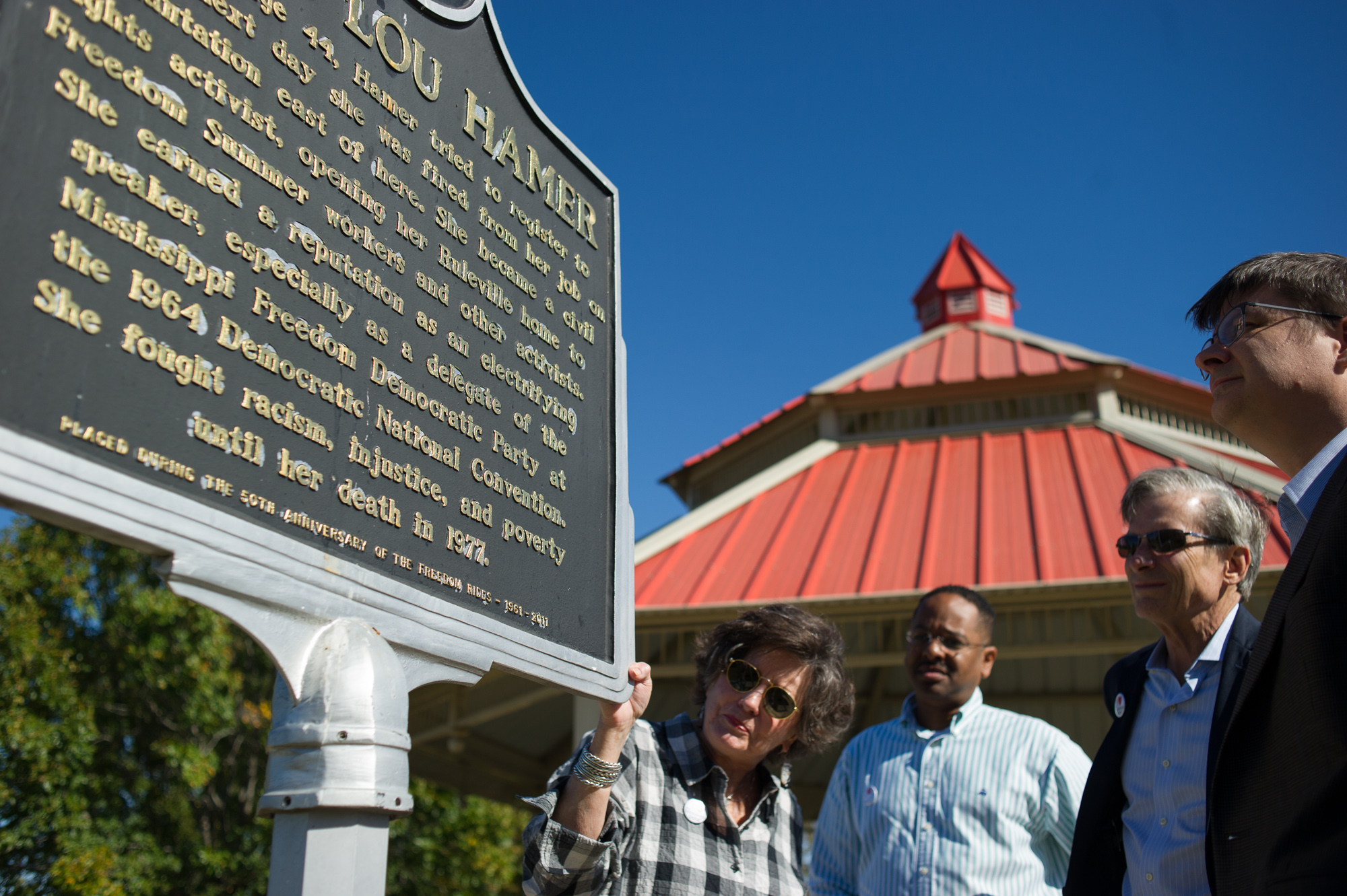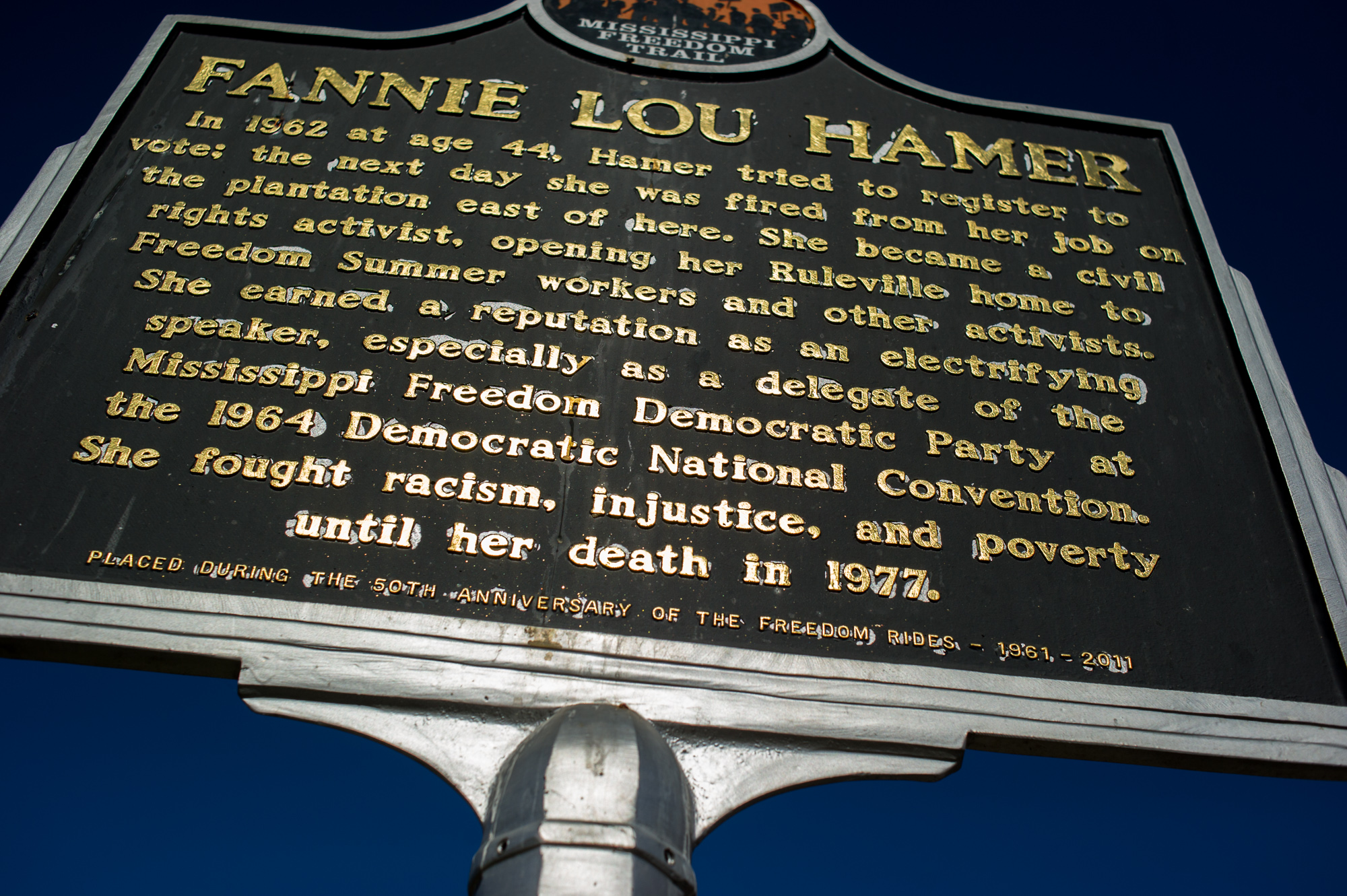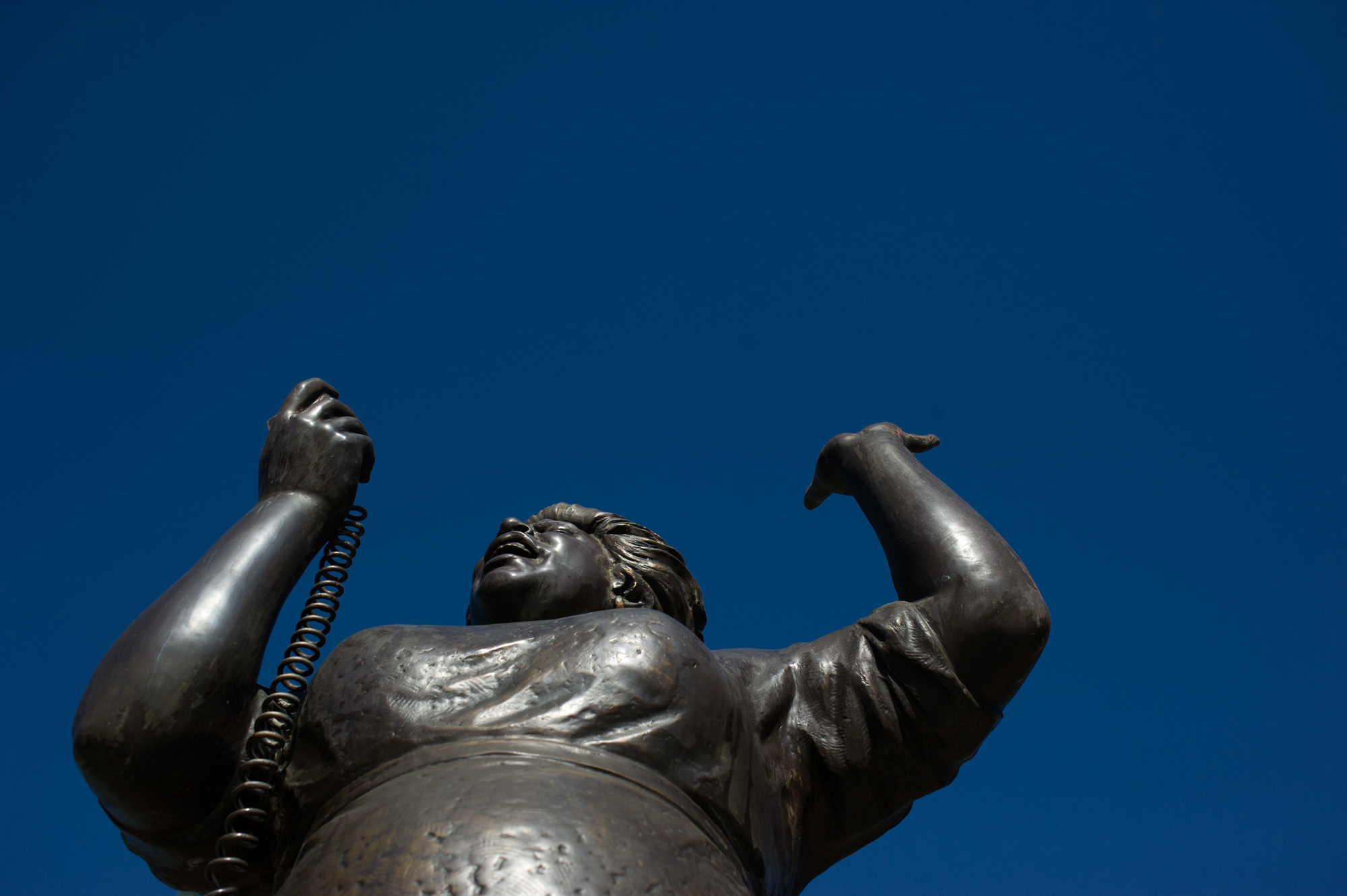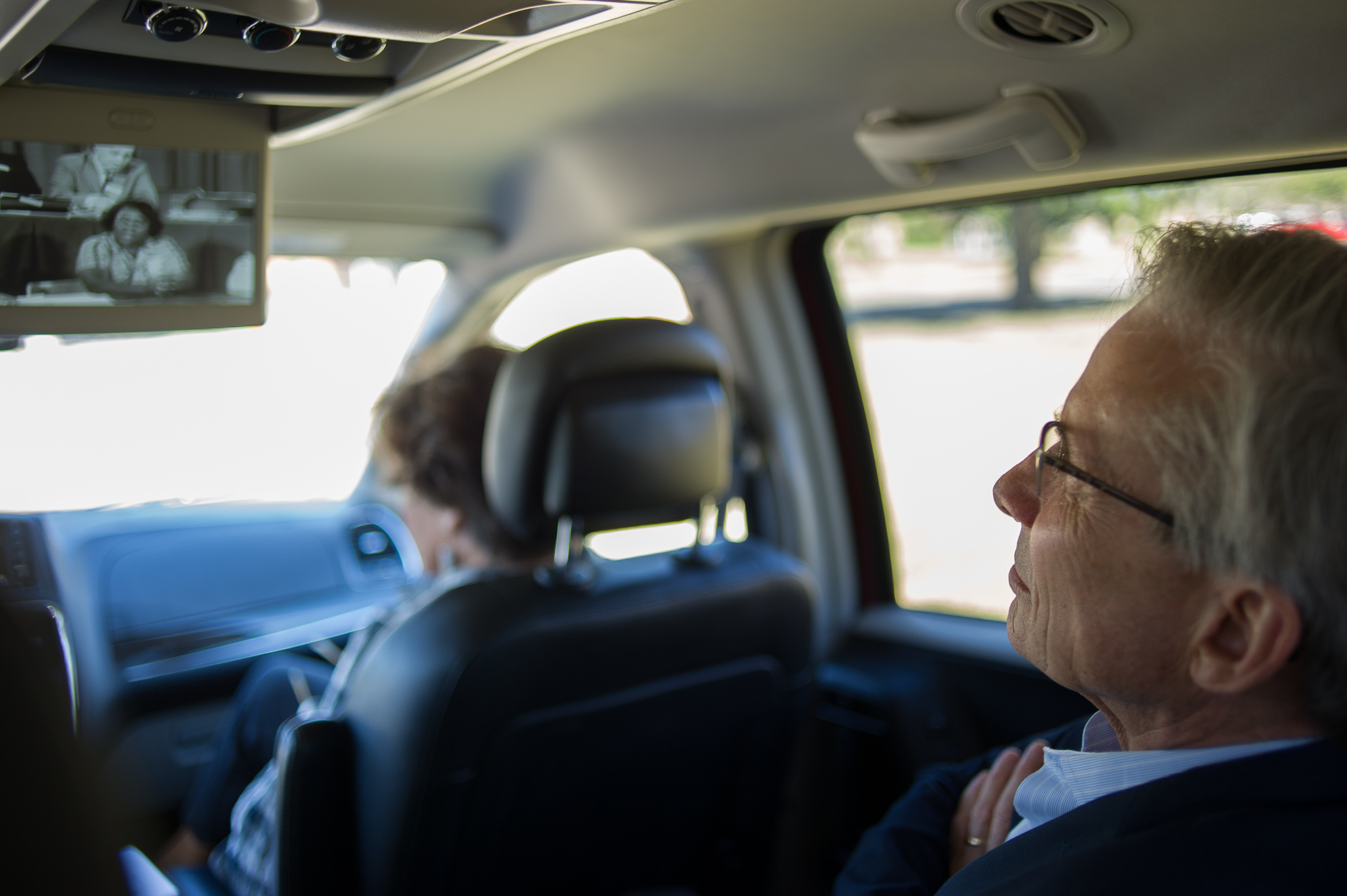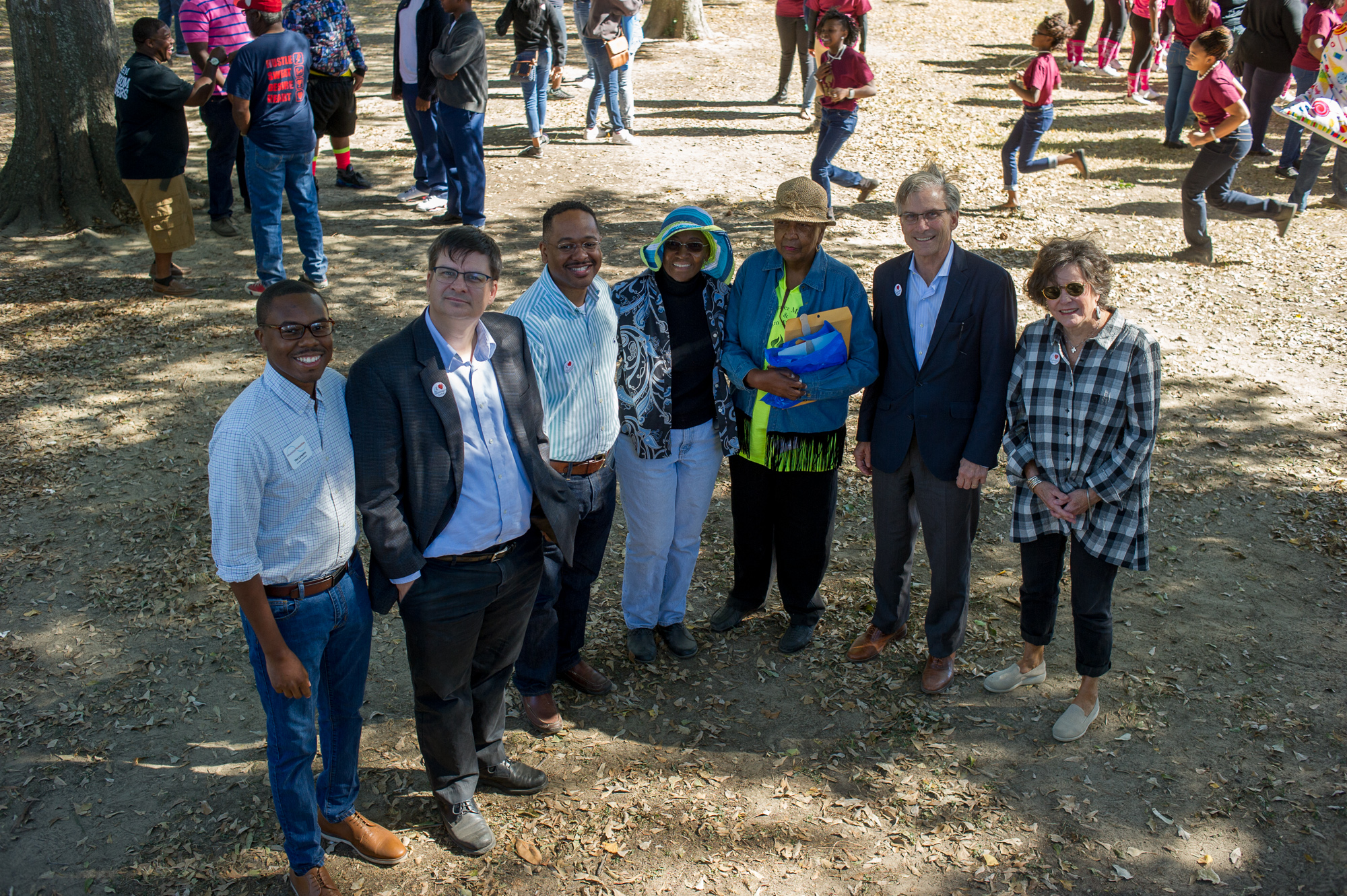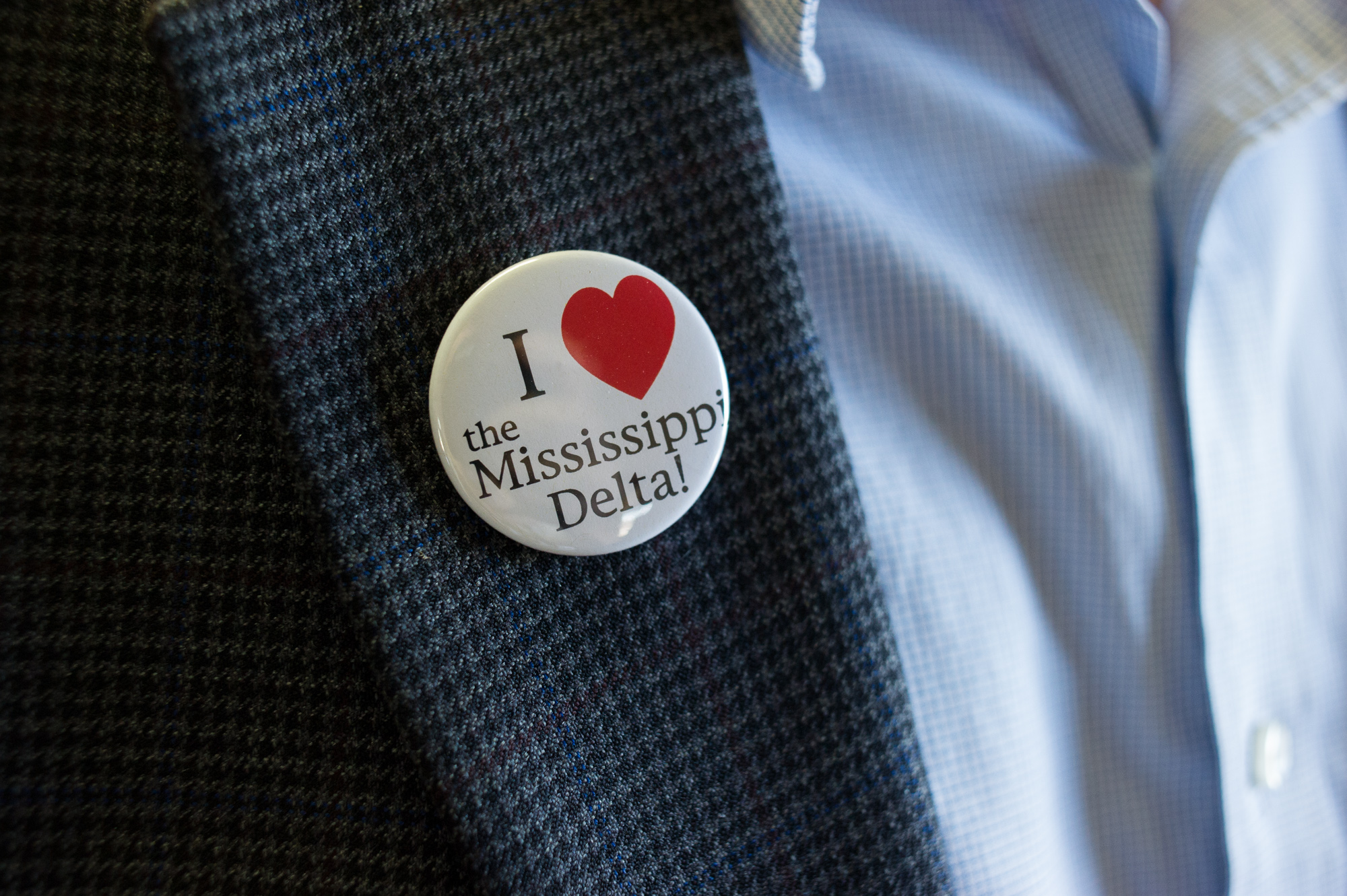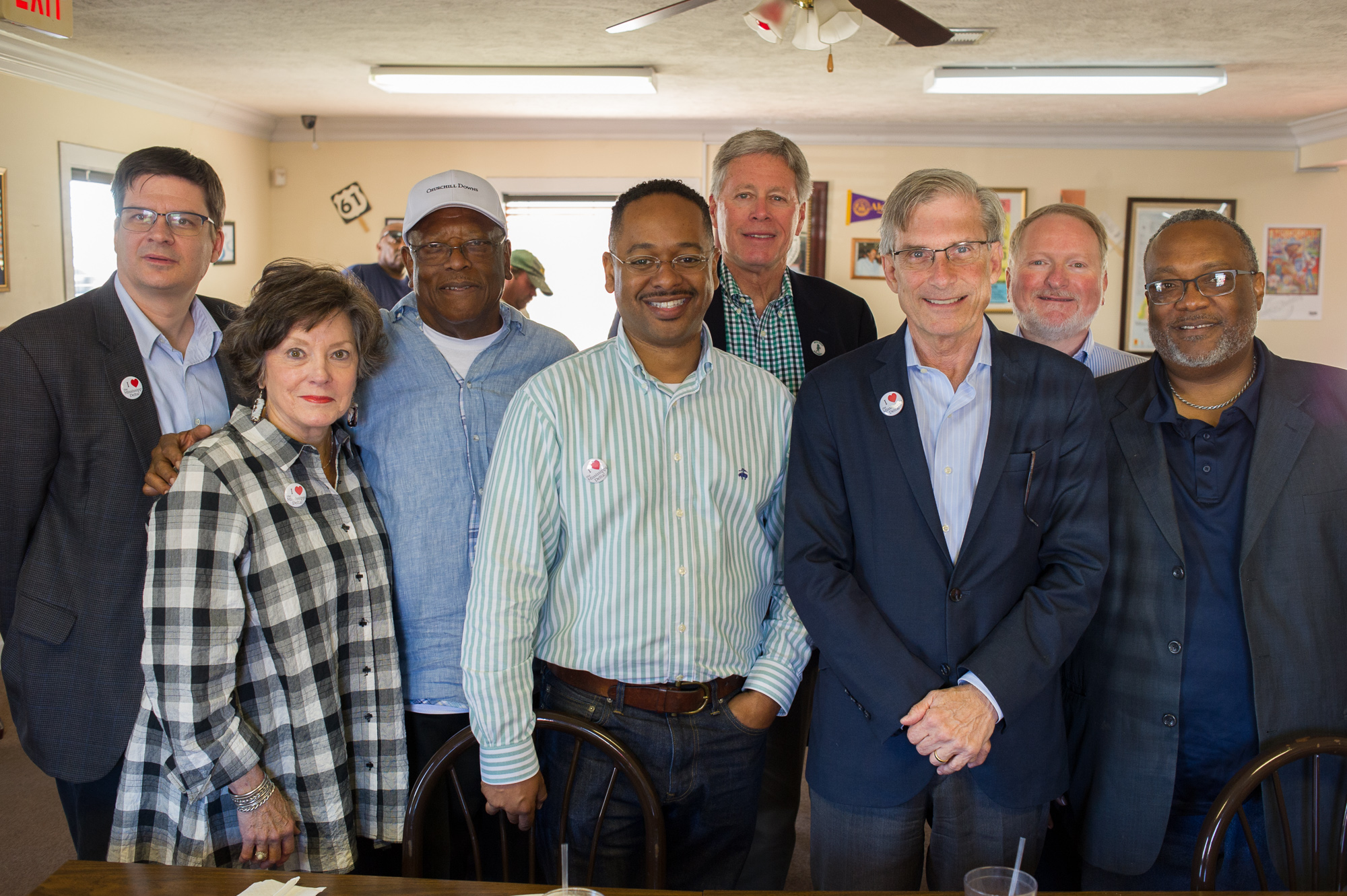Summer 2019 NEH Most Southern workshop participants and staff gather at the Fannie Lou Hamer Memorial Garden in Ruleville, MS.
The Delta Center for Culture and Learning at Delta State University is among 11 institutions that have been awarded Landmarks of American History and Culture grants from the National Endowment for the Humanities (NEH). The Delta Center’s “The Most Southern Place On Earth: Music, History, and Culture of the Mississippi Delta” teacher workshops is the only NEH Landmarks project funded in Mississippi this year.
This is the 11th year that NEH has awarded a grant to The Delta Center at Delta State for hosting the Most Southern workshop. Over the 11 years, NEH has invested nearly $2 million in Delta State and surrounding Mississippi Delta communities through the Most Southern workshop.
The National Humanities Alliance in Washington, D.C., has recognized the Most Southern workshop as a high impact NEH program in several key measurement areas, including enriching k-12 education; providing lifelong learning opportunities for diverse audiences; facilitating community dialogue; fostering local tourism economies; and promoting civic education.
NEH Most Southern workshop participants read the “Black Power” Mississippi Freedom Trail Marker in Greenwood, MS.
This year, NEH also recognized The Delta Center by using the narrative section of its Most Southern workshop proposal as a model for organizations to use when writing NEH landmarks of American history and culture grant applications.
The Delta Center’s award is part of the NEH’s recently announced $30 million in grants for 238 humanities projects across the country. NEH Landmarks grants support two one-week workshops for a national audience of e-12 educators that enhance and strengthen humanities teaching.
“These challenging times underscore how important the humanities are to making American culture and world history relatable across generations,” said NEH Chairman Jon Parrish Peede. “NEH is proud to award hundreds of grants to keep our nation’s scholars, students, teachers, and citizens moving forward in pursuit of new knowledge and understanding.”
This round of funding, NEH’s last for fiscal year 2020, will support vital research, education, preservation, and public programs in the humanities. These peer-reviewed grants were awarded in addition to $50 million in annual operating support provided to the national network of state and jurisdictional humanities councils.
NEH Most Southern workshop participants experience the flood of 1927 story at the Mississippi River.
“We are honored that NEH has funded our Most Southern Place on Earth teacher workshop for an 11th time,” said Dr. Rolando Herts, director of The Delta Center and co-director of the workshop. “Our region continues to make considerable strides in cultural heritage development through Delta State and the Mississippi Delta National Heritage Area (MDNHA). We look forward to immersing our participants in this culturally significant place by engaging them with scholars, performers, and residents who are telling Delta stories through the Blues, the civil rights movement, the food, the land, and the Mississippi River.”The Delta Center will offer two workshops in summer 2021, with 36 k-12 teachers from throughout the U.S. in each cohort. Over the past decade, the NEH Most Southern workshops have developed a dedicated network of more than 700 alumni scholars who serve as educational and cultural ambassadors for Delta State University and the MDNHA. The workshops use an experiential learning approach, engaging participants directly with historically and culturally significant people and places in the MDNHA.
Workshop participants take what they have learned back to their schools and communities, sharing stories and lessons from the MDNHA with students, colleagues, family and friends, nationally and globally. Many past participants have made return visits to the region, bringing students, colleagues, family and friends with them.
“In previous years, we have had participants from Hawaii, California, Illinois, and New York, as well as several scholars from right here in Mississippi,” said Lee Aylward, program associate for education and community outreach at The Delta Center and workshop co-director. “Our alumni are actively engaged with and have enduring respect for The Delta Center, Delta State and the Delta region because of this workshop. Several of them have presented at our International Conference on the Blues and have completed the International Blues Scholars Program, our online Blues Studies certificate.”
The mission of The Delta Center is to promote greater understanding of Mississippi Delta culture and history and its significance to the world through education, partnerships and community engagement. The Delta Center serves as the management entity of the MDNHA and is the home of the International Delta Blues Project and the NEH Most Southern Place on Earth workshop. For more information, visit http://www.deltacenterdsu.com.
The MDNHA is a partnership between the people of the Mississippi Delta and the National Park Service. The MDNHA was designated by U.S. Congress in 2009 and is governed by a board of directors representing agencies and organizations defined in the Congressional legislation. More information about the MDNHA, including the complete approved management plan, is available at http://www.msdeltaheritage.com.

